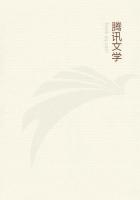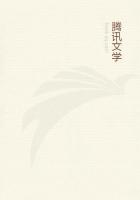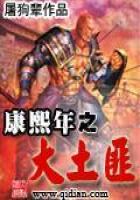The second way was this.Instead of causing the centuries to vote throughout in order, which would have meant beginning always with the first, the Romans always chose one by lot which proceeded alone to the election; after this all the centuries were summoned another day according to their rank, and the same election was repeated, and as a rule confirmed.Thus the authority of example was taken away from rank, and given to the lot on a democratic principle.
From this custom resulted a further advantage.The citizens from the country had time, between the two elections, to inform themselves of the merits of the candidate who had been provisionally nominated, and did not have to vote without knowledge of the case.But, under the pretext of hastening matters, the abolition of this custom was achieved, and both elections were held on the same day.
The comitia tributa were properly the council of the Roman people.
They were convoked by the tribunes alone; at them the tribunes were elected and passed their plebiscita.The senate not only had no standing in them, but even no right to be present; and the senators, being forced to obey laws on which they could not vote, were in this respect less free than the meanest citizens.This injustice was altogether ill-conceived, and was alone enough to invalidate the decrees of a body to which all its members were not admitted.Had all the patricians attended the comitia by virtue of the right they had as citizens, they would not, as mere private individuals, have had any considerable influence on a vote reckoned by counting heads, where the meanest proletarian was as good as the princeps senatus.
It may be seen, therefore, that besides the order which was achieved by these various ways of distributing so great a people and taking its votes, the various methods were not reducible to forms indifferent in themselves, but the results of each were relative to the objects which caused it to be preferred.
Without going here into further details, we may gather from what has been said above that the comitia tributa were the most favourable to popular government, and the comitia centuriata to aristocracy.
The comitia curiata , in which the populace of Rome formed the majority, being fitted only to further tyranny and evil designs, naturally fell into disrepute, and even seditious persons abstained from using a method which too clearly revealed their projects.It is indisputable that the whole majesty of the Roman people lay solely in the comitia centuriata , which alone included all; for the comitia curiata excluded the rural tribes, and the comitia tributa the senate and the patricians.
As for the method of taking the vote, it was among the ancient Romans as simple as their morals, although not so simple as at Sparta.Each man declared his vote aloud, and a clerk duly wrote it down; the majority in each tribe determined the vote of the tribe, the majority of the tribes that of the people, and so with curiæ and centuries.This custom was good as long as honesty was triumphant among the citizens, and each man was ashamed to vote publicly in favour of an unjust proposal or an unworthy subject; but, when the people grew corrupt and votes were bought, it was fitting that voting should be secret in order that purchasers might be restrained by mistrust, and rogues be given the means of not being traitors.
I know that Cicero attacks this change, and attributes partly to it the ruin of the Republic.But though I feel the weight Cicero's authority must carry on such a point, I cannot agree with him; I hold, on the contrary, that, for want of enough such changes, the destruction of the State must be hastened.Just as the regimen of health does not suit the sick, we should not wish to govern a people that has been corrupted by the laws that a good people requires.There is no better proof of this rule than the long life of the Republic of Venice, of which the shadow still exists, solely because its laws are suitable only for men who are wicked.
The citizens were provided, therefore, with tablets by means of which each man could vote without any one knowing how he voted: new methods were also introduced for collecting the tablets, for counting voices, for comparing numbers, etc.; but all these precautions did not prevent the good faith of the officers charged with these functions 37 from being often suspect.Finally, to prevent intrigues and trafficking in votes, edicts were issued; but their very number proves how useless they were.
Towards the close of the Republic, it was often necessary to have recourse to extraordinary expedients in order to supplement the inadequacy of the laws.Sometimes miracles were supposed; but this method, while it might impose on the people, could not impose on those who governed.Sometimes an assembly was hastily called together, before the candidates had time to form their factions: sometimes a whole sitting was occupied with talk, when it was seen that the people had been won over and was on the point of taking up a wrong position.But in the end ambition eluded all attempts to check it; and the most incredible fact of all is that, in the midst of all these abuses, the vast people, thanks to its ancient regulations, never ceased to elect magistrates, to pass laws, to judge cases, and to carry through business both public and private, almost as easily as the senate itself could have done.5.THE TRIBUNATE W HEN an exact proportion cannot be established between the constituent parts of the State, or when causes that cannot be removed continually alter the relation of one part to another, recourse is had to the institution of a peculiar magistracy that enters into no corporate unity with the rest.This restores to each term its right relation to the others, and provides a link or middle term between either prince and people, or prince and Sovereign, or, if necessary, both at once.















